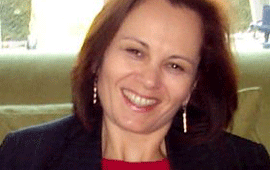> [Archived] Interviews

'German musicology has not yet exhausted the themes in Richard Wagner's music' - an interview with Valentina Sandu Dediu
I can see the issues tackled at the International Musicological Conference in Leipzig, were really various. Could you give us a few main points of the symposium?
Firstly, the symposium was organised around the day of 22nd May in order to mark Wagner's birthday exactly. It focused on a few main themes, mostly on Wagner's reception in Western Europe, Central Europe and Eastern Europe - and this might be a novelty for the German bibliography. There were also sessions on Wagner's early works, on his compositions proper and on Wagner - the writer.
Were there any themes that took precedence?
Yes. Certain concepts kept coming up during the conference and they were certainly related mostly to Wagner's more controversial works, to his anti-Semitic, intolerant aspects… finally, to his subsequent reception, to the understanding or misunderstanding of some of his works, to the fact that these compositions have often disfavoured the very musical reception. But, the part that I sat in on - because I could not attend the entire conference - was mostly focused on Wagner's reception in a variety of cities, Vilnius, Saint Petersburg, Bucharest, Belgrade, Prague, Bratislava etc.
You presented an essay on Wagner's reception in Romania. What do you think is the German composer's position in today's Romania?
I think in Romania - as I have noticed from all sorts of sources - he met with a very good reception and an assiduous staging of his operas between the wars. This happened once the two important theatres in Cluj and Bucharest were founded up until the Second World War. After the war, Wagner lost ground insofar as having his operas staged was concerned, and it was only natural because of the political situation, not being natural at all in itself. But this year we see an increased interest in it and the 'Enescu' Festival shows it very well, as well as the stagings at the Romanian Opera in Bucharest and Cluj, which prove its reevaluation, too. Let us not forget though that in Romania we have never staged Wagner's tetralogy or Parsifal. So in any way, it looks like Wagner enjoyed an important reception between the wars, which is also the period that gave us the most important book on Wagner - in my opinion, at least - written in Romanian, whose author is Emanoil Ciomac.
What is the perception of Wagner in 2013 in Leipzig?
There is a complex, multifaceted, diverse perception of him, as it was natural, perhaps. Leipzig is his hometown and the city where he has spent some of his life. It is also a city of musical Romanticism, because so many other names are connected to Leipzig: Schumann, Mendelssohn, Grieg, Bach - and then certainly, this whole musical context is related to Wagner and all that has happened to him. Anyway, the German musicology has not yet exhausted the themes in Wagner's music and it is not alone in this, because I have heard Wagner conferences have been organised since the end of 2012, in Shanghai, only to continue in Bern, in South Carolina, and elsewhere perhaps, during the whole of this year.
Translated by Irina Borțoi and Elena Daniela Radu
MTTLC, The University of Bucharest














